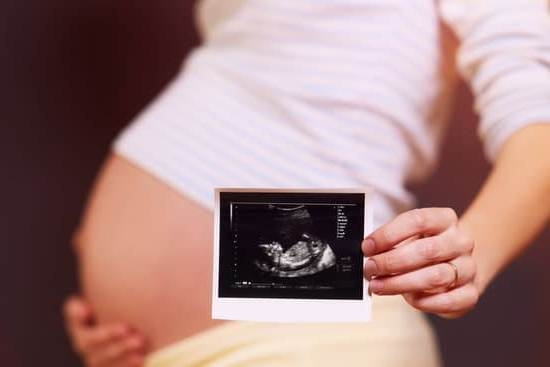How soon can a blood test detect pregnancy after conception? Understanding the process of conception and pregnancy is crucial in answering this question. Conception occurs when a sperm fertilizes an egg, leading to the formation of a zygote. This zygote then implants itself into the lining of the uterus, kicking off the journey of pregnancy.
When it comes to detecting pregnancy, both blood tests and urine tests are commonly used methods. While urine tests can detect pregnancy hormones around 10-14 days after conception, blood tests can detect these hormones even earlier. This makes blood tests a more accurate method for early detection of pregnancy.
The timing for how soon a blood test can detect pregnancy after conception varies but generally, it can detect pregnancy as early as 6-8 days post ovulation. Factors such as the sensitivity of the test and individual hormone levels can affect the accuracy of the results. Consulting with a healthcare provider is crucial for interpreting these results accurately and managing a potential pregnancy effectively.
The Difference Between Blood Tests and Urine Tests in Detecting Pregnancy
When it comes to detecting pregnancy, both blood tests and urine tests play a crucial role in confirming conception. While urine tests are more commonly used due to their accessibility and convenience, blood tests are able to detect pregnancy much earlier after conception. So, how soon can a blood test detect pregnancy after conception?
Blood tests for pregnancy can typically detect the hormone hCG (human chorionic gonadotropin) as early as 7-12 days after conception. This is because hCG is released by the developing placenta shortly after the fertilized egg attaches to the uterine lining. In contrast, urine tests may require higher levels of hCG to provide a positive result, making them slightly less sensitive than blood tests in the early stages of pregnancy.
It’s important to note that the timing of when a blood test can detect pregnancy after conception can vary from woman to woman. Factors such as the sensitivity of the test used, the level of hCG in the woman’s body, and the regularity of her menstrual cycle can all impact how soon a positive result can be obtained.
Consulting with a healthcare provider for guidance on when to take a blood test can help ensure accurate results and provide clarity during this crucial time.
| Aspect | Information |
|---|---|
| Earliest Detection Time | 7-12 days after conception |
| Factors Affecting Sensitivity | Type of test used, hCG levels, menstrual cycle regularity |
How Soon Can a Blood Test Detect Pregnancy After Conception
After conception, many women are eager to find out if they are pregnant as soon as possible. One of the most accurate methods for detecting pregnancy is through a blood test. Unlike urine tests that detect the presence of the pregnancy hormone hCG (human chorionic gonadotropin) in urine, blood tests can measure even low levels of hCG in the blood, providing earlier detection of pregnancy.
So, how soon can a blood test detect pregnancy after conception? Blood tests can typically detect hCG levels as early as 7-12 days after conception. This means that a blood test can potentially provide confirmation of pregnancy even before a missed period occurs. However, it is important to note that the timing of when hCG becomes detectable in the blood can vary from woman to woman, depending on factors such as implantation timing and individual hCG production.
Factors such as the sensitivity of the test used and the laboratory processing time can also affect how soon a blood test can detect pregnancy after conception. Higher sensitivity tests may be able to detect lower levels of hCG earlier in pregnancy.
Additionally, some healthcare providers may offer rapid turnaround times for blood test results, providing more timely information about pregnancy status. Ultimately, consulting with a healthcare provider will help determine the best timing and type of blood test for accurate detection of pregnancy after conception.
Factors That Can Affect the Accuracy of a Blood Test in Detecting Pregnancy
When it comes to detecting pregnancy, accuracy is crucial for early and reliable results. While blood tests are considered one of the most accurate methods for detecting pregnancy, there are certain factors that can affect their reliability. Understanding these factors can help individuals interpret their test results correctly. Here are some key factors that can influence the accuracy of a blood test in detecting pregnancy:
- Timing: The timing of when the blood test is taken in relation to conception plays a significant role in its accuracy. Blood tests can typically detect pregnancy as early as 7-12 days after conception. Testing too early may result in a false negative result, as it takes time for the levels of hCG (human chorionic gonadotropin) hormone to rise high enough to be detected in the blood.
- Quality of the laboratory: The accuracy of a blood test also depends on the quality and sensitivity of the laboratory performing the test. It is important to ensure that you are getting your blood test done at a reputable and reliable healthcare facility with experienced technicians.
- Health conditions and medications: Certain health conditions such as polycystic ovary syndrome (PCOS) or medications containing hCG can potentially interfere with the results of a blood test. It is important to inform your healthcare provider about any underlying health conditions or medications you are taking before undergoing a pregnancy blood test.
Taking these factors into consideration can help individuals better understand and interpret their blood test results accurately when detecting pregnancy after conception. Consulting with a healthcare provider for proper guidance and interpretation of the results is highly recommended for accurate diagnosis and early detection.
Comparison of Blood Test Sensitivity With Other Pregnancy Detection Methods
When it comes to detecting pregnancy, there are various methods available, including urine tests and blood tests. Many women wonder about the accuracy and reliability of these different options, particularly when trying to determine how soon they can detect pregnancy after conception. Understanding the sensitivity of each method is crucial in making an informed decision about which test to choose.
To better understand the comparison of blood test sensitivity with other pregnancy detection methods, let’s break down some key points:
- Urine Tests: Urine tests are commonly used as a quick and convenient way to detect pregnancy. These tests typically measure the levels of human chorionic gonadotropin (hCG) in urine. While urine tests can provide accurate results, they may not be as sensitive as blood tests in detecting pregnancy in the early stages.
- Blood Tests: Blood tests, on the other hand, are considered more sensitive than urine tests when it comes to detecting hCG levels. This means that a blood test can detect pregnancy sooner after conception than a urine test. Some blood tests can detect hCG levels as early as 6-8 days after ovulation.
Considering the difference in sensitivity between blood tests and urine tests, many women opt for blood testing when they are eager to find out if they are pregnant soon after conception. However, it is important to note that factors such as timing and method of testing can influence the accuracy of results. Consulting with a healthcare provider is recommended for guidance on choosing the most appropriate pregnancy detection method based on individual circumstances and needs.
Advantages of Getting a Blood Test to Detect Pregnancy Early
Early Detection for Peace of Mind
One of the key advantages of getting a blood test to detect pregnancy early is the peace of mind it can provide. For many women who are eager to start a family or have been actively trying to conceive, the wait for a missed period or positive home pregnancy test can be anxiety-inducing.
By opting for a blood test that can detect pregnancy soon after conception, individuals can get confirmation sooner and alleviate some of the uncertainty that comes with waiting.
Accuracy and Sensitivity
Another advantage of utilizing a blood test for early pregnancy detection is the higher accuracy and sensitivity compared to urine tests. Blood tests are able to detect the hormone hCG in smaller amounts than urine tests, making them more reliable in detecting pregnancy at an early stage. This increased sensitivity can provide individuals with a clearer understanding of their pregnancy status, especially during the very early stages when hCG levels may be lower.
Early Prenatal Care and Planning
Getting a blood test to detect pregnancy early also allows individuals to start prenatal care sooner. Early detection means that healthcare providers can monitor the progression of the pregnancy from its earliest stages, ensuring that both mother and baby receive appropriate care and support. Additionally, knowing about the pregnancy early on enables individuals to make important decisions regarding their health, lifestyle, and future plans, leading to better overall pregnancy management.
Importance of Consulting With a Healthcare Provider for Accurate Pregnancy Testing
Importance of Timely Testing
Consulting with a healthcare provider for accurate pregnancy testing is crucial, especially when considering the timeline of how soon a blood test can detect pregnancy after conception. While home pregnancy tests are readily available and convenient, they may not always provide reliable results in the earliest stages of pregnancy. Healthcare providers have access to more sensitive blood tests that can detect pregnancy hormones sooner than urine tests, offering a more accurate and timely confirmation of pregnancy.
Confirming Pregnancy Early
Healthcare providers typically recommend waiting at least one week after a missed period to perform a blood test for pregnancy. However, some blood tests can detect pregnancy hormones as early as 7-12 days after conception.
This early detection is beneficial for women who are trying to conceive or want to confirm their pregnancy as soon as possible. By consulting with a healthcare provider and getting a blood test promptly, individuals can start receiving prenatal care and making necessary lifestyle changes early on in their pregnancy.
Ensuring Accuracy and Support
Accuracy is key when it comes to confirming a pregnancy, especially if the results will impact important decisions about health and future planning. While home tests are convenient, they may not be as sensitive or reliable as blood tests performed in a healthcare setting.
Additionally, healthcare providers can offer support, guidance, and resources to individuals who receive positive results from their blood tests. By consulting with a healthcare provider for accurate pregnancy testing, individuals can ensure that they have the necessary information and care throughout their pregnancy journey.
Personal Stories From Women Who Have Experienced Early Detection of Pregnancy Through Blood Tests
For many women, the anticipation and excitement of finding out if they are pregnant can be a significant moment in their lives. Some may opt for a blood test to detect pregnancy earlier than a traditional urine test. The question often asked is “How soon can a blood test detect pregnancy after conception?” Typically, blood tests can detect pregnancy as early as 7-12 days after conception, which is earlier than most urine tests available in the market.
A blood test for pregnancy looks for the presence of the hormone hCG (human chorionic gonadotropin), which is produced by the placenta shortly after implantation occurs. Since hCG levels rise rapidly in the early stages of pregnancy, blood tests are able to pick up on lower levels of this hormone compared to urine tests. This increased sensitivity is why blood tests are considered more accurate and reliable for early detection of pregnancy.
Women who have opted for a blood test to detect pregnancy soon after conception often share their experiences of knowing they were pregnant before other methods could confirm it. These personal stories highlight not just the accuracy and quick detection made possible by blood tests but also the emotional impact it had on them during those initial stages of pregnancy discovery.
Consultation with healthcare providers during this time further confirms the accuracy and reliability of these early detections, providing reassurance and support during this critical period.
| Benefits | Early Detection Through Blood Tests |
|---|---|
| Accuracy | Can detect pregnancy as early as 7-12 days after conception. |
| Sensitivity | Blood tests are more sensitive due to detecting lower levels of hCG. |
Conclusion
In conclusion, knowing how soon a blood test can detect pregnancy after conception is crucial for many women who are eager to confirm their pregnancy as early as possible. Generally, a blood test can detect pregnancy as early as 6-8 days after ovulation or conception, making it one of the most sensitive methods of pregnancy detection available. This early detection window can provide women with a head start in managing their pregnancy and making necessary lifestyle changes.
Early detection of pregnancy through a blood test offers several advantages, including the ability to begin prenatal care promptly, monitor the progression of the pregnancy more closely, and make informed decisions about health practices during this critical time. By detecting pregnancy early on, healthcare providers can offer appropriate guidance and support to ensure a healthy outcome for both mother and baby. This proactive approach to pregnancy management can lead to better health outcomes and a smoother transition into parenthood.
Ultimately, consulting with a healthcare provider for accurate pregnancy testing is essential in ensuring that the results are interpreted correctly and appropriate steps are taken moving forward. Whether opting for a blood test or another method of detection, seeking professional advice can help alleviate any uncertainties and concerns surrounding the confirmation of pregnancy. Early detection not only allows expectant mothers to prepare physically and emotionally but also sets the stage for a well-supported journey towards motherhood.
Frequently Asked Questions
How Quickly Can a Blood Test Tell if You’re Pregnant?
A blood test can accurately detect pregnancy as early as 7-12 days after conception. This is earlier than most home pregnancy tests, which usually require a higher level of hCG to show positive.
How Long After Conception Does hCG Show in Blood?
It typically takes about 9-10 days after conception for hCG levels to be high enough to be detected in the blood. This hormone is produced after implantation occurs, making it a reliable indicator of pregnancy in blood tests.
How Early Will a Blood Pregnancy Test Show Positive?
Blood pregnancy tests can often show a positive result just 7-12 days post-conception, depending on the sensitivity of the test and the woman’s individual hCG levels. This early detection can provide peace of mind sooner than other methods.

Welcome to my fertility blog. This is a space where I will be sharing my experiences as I navigate through the world of fertility treatments, as well as provide information and resources about fertility and pregnancy.





